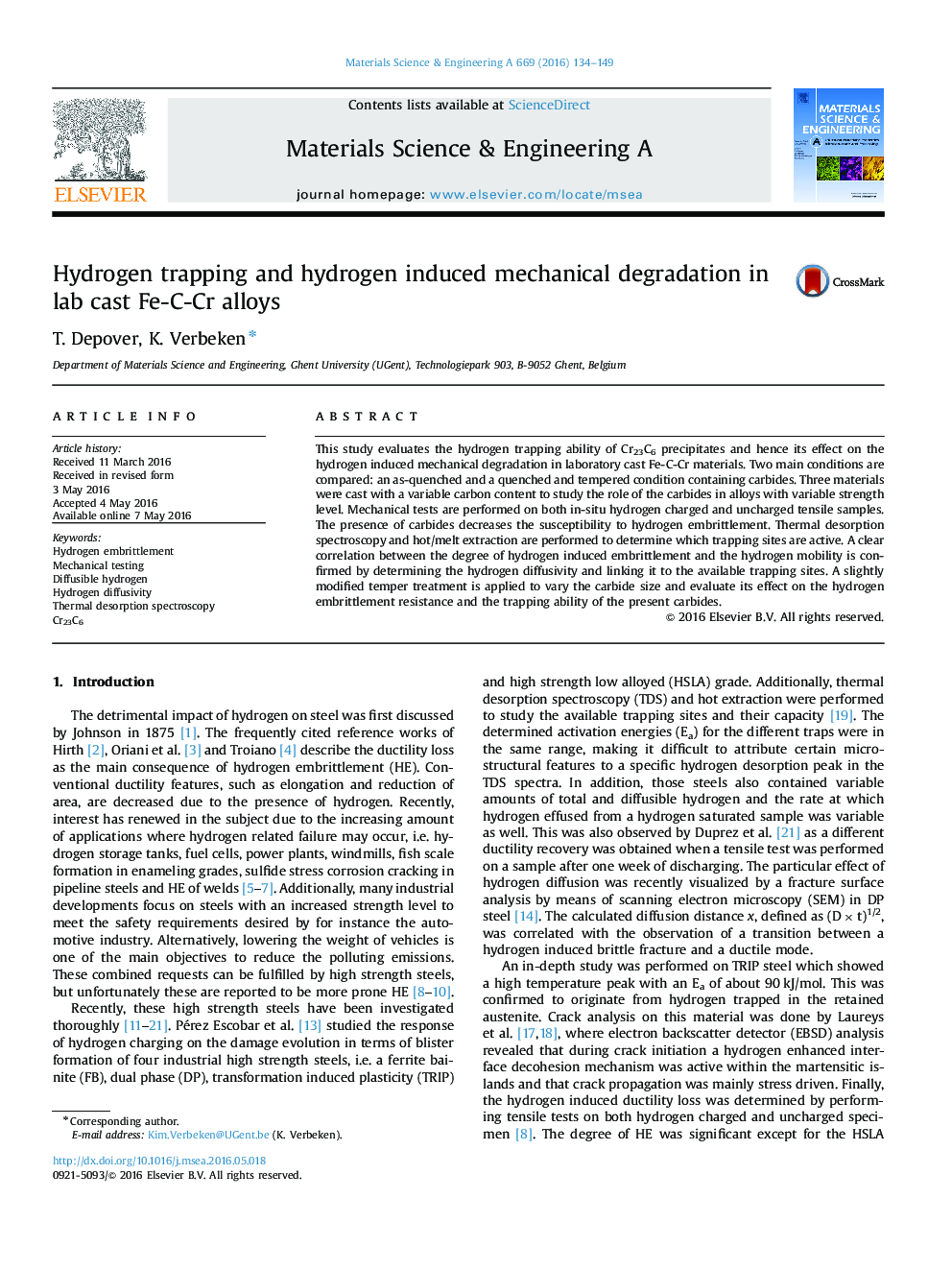| Article ID | Journal | Published Year | Pages | File Type |
|---|---|---|---|---|
| 1573359 | Materials Science and Engineering: A | 2016 | 16 Pages |
Abstract
This study evaluates the hydrogen trapping ability of Cr23C6 precipitates and hence its effect on the hydrogen induced mechanical degradation in laboratory cast Fe-C-Cr materials. Two main conditions are compared: an as-quenched and a quenched and tempered condition containing carbides. Three materials were cast with a variable carbon content to study the role of the carbides in alloys with variable strength level. Mechanical tests are performed on both in-situ hydrogen charged and uncharged tensile samples. The presence of carbides decreases the susceptibility to hydrogen embrittlement. Thermal desorption spectroscopy and hot/melt extraction are performed to determine which trapping sites are active. A clear correlation between the degree of hydrogen induced embrittlement and the hydrogen mobility is confirmed by determining the hydrogen diffusivity and linking it to the available trapping sites. A slightly modified temper treatment is applied to vary the carbide size and evaluate its effect on the hydrogen embrittlement resistance and the trapping ability of the present carbides.
Keywords
Related Topics
Physical Sciences and Engineering
Materials Science
Materials Science (General)
Authors
T. Depover, K. Verbeken,
